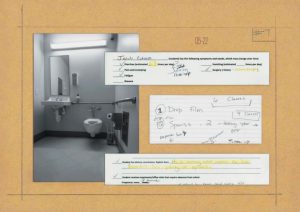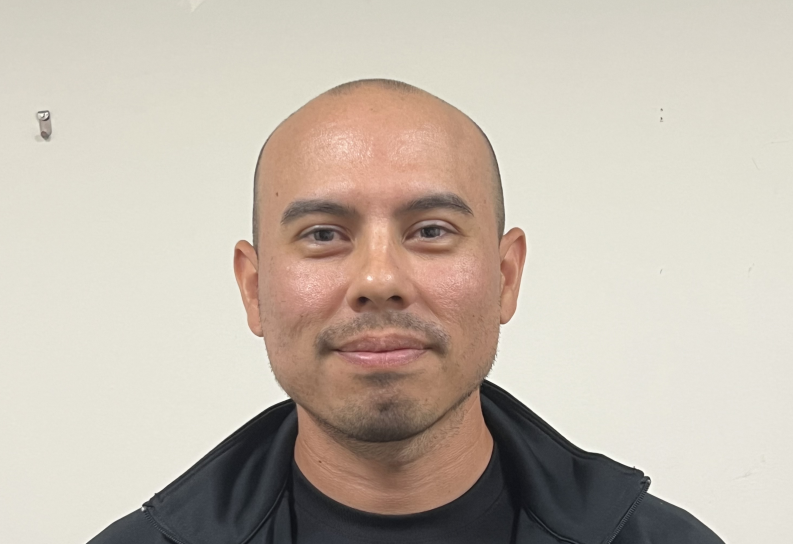How to Be Successful in AP Biology: By AP Biology Alumni
AP Biology alumni share advice on their experiences in AP Biology.
April 3, 2020
There is no doubt about it: AP Biology is one of the most rigorous courses at Greenhill.
Advanced Placement (AP) Biology is an introductory college-level biology course. It covers processes that govern living organisms and biological systems through topics such as evolution, cellular processes, energy and communication, genetics, information transfer, ecology and interactions. Additionally, students perform an extensive series of laboratory investigations as specified by CollegeBoard. Students taking AP Biology are also expected to complete a series of summer assignments to review basic chemistry and biology concepts.
Are you thinking of taking AP Biology in the coming years? We asked AP Biology alumni some questions about the most pertinent parts of the course:
What are your recommendations for the summer assignment in AP Biology?
I think that it’s hard to have the motivation to begin the summer assignment at the beginning of summer, but I would make sure you have at least three weeks free at the end of summer. Unless you want more than three or four hours in a day, it’s nice to have three weeks to work on the assignments and do one unit per week. That way you can split up the readings into two days for about one to two hours a day, then one other assignment per day for that unit for about one hour. By spreading it out over three weeks, it doesn’t take too long to complete everything, but it’s not an overwhelming amount. [As a sophomore], I think it did a good job of setting my foundation for biology since most of the units were the key concepts from regular biology.
– Sophomore Jack Vawrinek
Thoughts about the first AP Biology test?
The first AP Biology test was a shock to me. I’d never taken an AP style test before, or a test with questions that were as difficult and as detail-orientated. So, I wasn’t all that surprised when I got my test back that my first ever interim report came along with it. Looking back now, I realize how much more importance I should have placed on the summer assignment since I put very little effort into it and didn’t even finish all of its components. I think if I’d put in the time and effort I should have, and come into the class prepared, I would have done a lot better on that test and put myself in a much better position to succeed the rest of the year. However, even if you do poorly, it’s a long year, the first trimester is the least weighted trimester and it’s very possible to get back up to a grade you’ll be happy with at the end of the year.
– Harrison Heymann ’19
How important is note-taking in AP Biology?
Yeah, [note-taking in AP Biology] is extremely important. Writing in a notebook helps reinforce the biology material. Additionally, the use of colors and diagrams helps visualize the material for students. The style of note-taking we used was the Cornell notes method. Although they were time-consuming, the style was an effective way to reinforce the material.
– Scott Wang ’19
What are assessments like in AP Biology and what studying techniques have you found helpful?
During the 2019-2020 school year, the format of AP Biology exams consisted of both multiple-choice and free-response sections. In particular, for a 55-minute test, there are 14 multiple choice questions and about three to four free-response questions. These tests are fast-paced and require you to use your time wisely and not get stuck on any one question. Assessments in AP Biology test your understanding of the material by using real scientific scenarios or investigations and experiments that correspond to the unit. Most times you won’t be able to anticipate the specific questions but you can synthesize your knowledge of the unit to make sense of the stimulus and answer the questions. For example, if you’re studying a unit about enzymes, the test will challenge you to apply your knowledge of enzymes and dissect the predicted outcome of an enzymatic reaction in the digestive tract.
Quizlet and doing practice free-response tests released by CollegeBoard have been very helpful for me. I suggest you try attempting free-response questions on a sheet of paper and then scoring it with the scoring guidelines. Not only do you get to see what areas you need to study further, but it is a great chance to see how CollegeBoard scores the AP Biology tests and what exactly they are looking for. Also, though AP Biology tests are mostly application-based, Quizlet is a nice tool to refresh concepts on the go.
– Senior Sola Omonije
Any tips for AP Biology labs and investigations?
During my time in AP Biology, the labs and investigations that I did were an important part of the curriculum’s purpose of preparing the student to become a future biologist. That said, there are a few things to keep in mind when doing a lab. One of these is that the purpose of a lab is to acquire skills, not knowledge. The information should have already been given to you previously. Learning skills is different than learning information. There is no “right” way of learning a skill. For each person, there may be several ways of approaching a lab that is best for their individual differences. Everybody has a style when it comes to learning skills. This means that if a certain technique works for a classmate, it does not necessarily have to work for you.
You have to be at 100 percent attention towards the lab you do. There are a few things school that you can get away with phasing out a bit, but labs are definitely not one of those activities. Labs have a lot of small details that are easy to miss, and the consequences of such mistakes will mess up a day’s work. On top of that, learning a skill is different from learning information in the way that one has to actively pay attention to what they are doing.
– Junior Victor Le
What did you do to study for the AP Biology Exam administered by CollegeBoard?
I definitely thought the tests we took in the class were more difficult than the actual AP exam, so one of the methods I used and what I think was the most helpful for me was reviewing these past tests. I skimmed over the test questions I got right to make sure I still understood the material, and completely redid the questions I did incorrectly. I also purchased an AP Biology book that had short explanations of the material, practice questions and practice tests. I reviewed specific areas that I didn’t feel as confident about, and I took a few practice tests. I spent most of my time reviewing free response questions because being able to explain my reasoning helped me to better understand the material as a whole.
– Junior Lindsay Jade Feinstein
To study for the AP Biology exam, I mainly did practice questions from old exams (such as international practice exams and free-response exams released on CollegeBoard), read through my notes, looked through my old AP Biology tests and talked to my teacher.
– Junior Anagha Gouru











